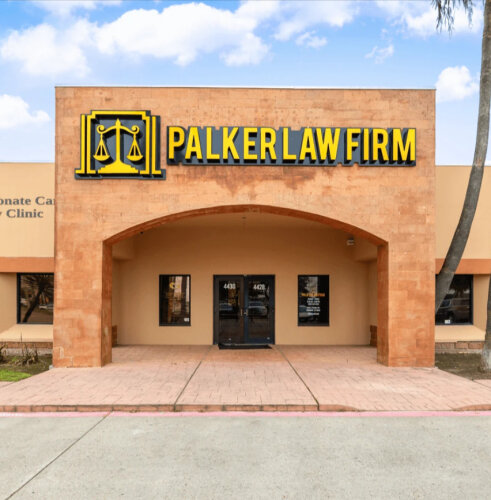Best Insurance Fraud Lawyers in Edinburg
Share your needs with us, get contacted by law firms.
Free. Takes 2 min.
List of the best lawyers in Edinburg, United States
About Insurance Fraud Law in Edinburg, United States
Insurance fraud means deliberately misrepresenting facts, concealing information, or otherwise acting dishonestly to obtain money or benefits from an insurance company. In Edinburg, Texas, insurance fraud is handled under state law and can lead to both criminal charges and civil liability. Common examples include staging accidents, inflating claims, submitting false medical or repair bills, and provider-side fraud such as billing for services not rendered. When a claim involves federal programs like Medicare or Medicaid, federal investigators may also get involved.
Cases in Edinburg are investigated by local law enforcement and county prosecutors, and they can also draw attention from state agencies and federal offices when larger or program-related fraud is suspected. Outcomes can include fines, restitution, license sanctions, probation, and imprisonment depending on the severity and whether the conduct is part of an organized scheme.
Why You May Need a Lawyer
Insurance fraud matters can be complex and serious. You may need a lawyer if you are accused of committing fraud, if an insurance company accuses you of misrepresentation, or if you are being investigated. Common situations that call for legal help include:
- Criminal accusations after an accident, claim, or business practice
- Allegations of staged incidents or falsified documents
- Provider or contractor investigations over billing practices
- Accusations that involve government programs such as Medicaid or Medicare
- When insurers deny claims and threaten civil recovery or seek restitution
A lawyer experienced in insurance fraud and criminal defense can explain potential charges, advise on whether to give statements, negotiate with prosecutors or insurers, work to reduce or dismiss charges, and protect your legal rights throughout the process.
Local Laws Overview
Insurance fraud in Edinburg is governed primarily by Texas state law and by applicable federal statutes when government programs or interstate activity are involved. Key aspects to understand:
- Criminal and civil exposure. A person or business can face criminal prosecution for deliberately fraudulent acts and civil suits from insurers seeking repayment of benefits paid in error or due to fraud.
- Types of prohibited conduct. Typical prohibited acts include knowingly presenting false information on a claim, staging losses or accidents, filing duplicate claims, forging or altering documents, and organized schemes to defraud insurers.
- Penalties. Penalties depend on the nature of the offense and the amount of loss. They can range from misdemeanor charges for minor fraud to felony charges for high-loss or organized schemes. Possible consequences include fines, restitution to victims, probation, and imprisonment. Administrative sanctions such as license suspension or revocation are also possible for licensed professionals.
- Investigations. Local law enforcement and the Hidalgo County District Attorney prosecute many cases. The Texas Department of Insurance has special investigative units that focus on insurance fraud. When federal funds or interstate elements are present, federal agencies can pursue separate charges for offenses like mail fraud and wire fraud.
- Defenses and mitigating factors. Defenses can include lack of intent, honest mistake, identity theft, or authorization. Effective legal representation can help present mitigating evidence and negotiate alternatives to conviction where appropriate.
Frequently Asked Questions
What exactly counts as insurance fraud?
Insurance fraud generally means knowingly making false statements, concealing material facts, or otherwise deceiving an insurer to obtain a benefit. That can include staged accidents, false injury claims, inflating repair bills, ghost billing by medical providers, and falsifying documents.
Can a simple mistake on a claim be treated as fraud?
Not usually. Fraud requires intent to deceive. Honest mistakes or clerical errors are normally handled differently than deliberate falsification. However, repeated inaccuracies or failure to correct known errors can raise suspicion. If you are unsure, consult an attorney before making statements.
What happens if I am accused of insurance fraud in Edinburg?
If accused, you may face a criminal investigation, potential arrest, and prosecution. Insurers may also pursue civil recovery of any amounts paid. The course of action depends on the facts, the amount at issue, and whether the conduct appears to be part of a scheme.
What penalties could I face?
Penalties vary by the severity of the offense and amount of loss. Consequences can include fines, restitution to the insurer, probation, community supervision, loss of professional licenses, and imprisonment for serious felonies. Administrative penalties may also apply if you hold a regulated license.
Will my insurance company report me to the police?
Yes. If an insurer suspects fraud, it commonly reports the matter to its special investigations unit and to local law enforcement or the state fraud unit. Reporting is standard when there is evidence suggesting intentional deception.
Should I talk to the insurer or investigators without a lawyer?
You should be cautious. Anything you say can be used in a civil or criminal case. It is generally wise to consult an attorney before giving recorded statements, signing releases, or providing documents beyond what is legally required.
Can social media posts be used as evidence?
Yes. Prosecutors and insurers often review social media and other online activity for evidence contradicting a claim. Avoid posting about the incident, your activities, or other potentially relevant information while an investigation is ongoing.
What defenses are commonly used in insurance fraud cases?
Common defenses include lack of criminal intent, honest mistake, misidentification, identity theft, authorization, and challenging the accuracy of the insurer's evidence. The best defense depends on the specific facts and available proof.
How long do I have to report suspected fraud or to defend myself?
Deadlines vary. If you are a victim or witness, report suspected fraud as soon as possible to preserve evidence. If you are accused, you should seek legal advice immediately. The statute of limitations for criminal and civil actions varies with the offense and whether state or federal laws apply, so prompt action is important.
How do I find a lawyer experienced in insurance fraud in Edinburg?
Look for criminal defense attorneys or civil litigators with experience handling insurance fraud, white-collar crime, or regulatory matters. Ask about their experience with local prosecutors and state fraud units, request references, discuss fees, and confirm whether they offer an initial consultation. If you cannot afford private counsel, you may be eligible for public defender services for criminal charges or legal aid for certain civil matters.
Additional Resources
Texas Department of Insurance - Fraud Unit - State agency that investigates insurance fraud and provides consumer information.
Hidalgo County District Attorney - Local prosecuting authority that handles criminal insurance fraud cases in the Edinburg area.
Edinburg Police Department - Local law enforcement that may investigate suspected fraud and take initial reports.
Texas Attorney General - State office that may be involved in consumer protection matters and large-scale fraud.
National Insurance Crime Bureau - Private organization that tracks insurance-related crimes and partners with law enforcement.
Federal Office of Inspector General - For suspected fraud involving federal health programs such as Medicare and Medicaid.
Federal Bureau of Investigation - For large or interstate insurance fraud schemes that may meet federal thresholds for investigation.
Next Steps
If you are facing an allegation or suspect someone of insurance fraud, take these practical steps:
- Preserve evidence. Keep records, receipts, photographs, emails, and any documents related to the claim or incident. Preserve electronic data and avoid deleting messages.
- Do not give detailed statements without legal advice. Politely decline to provide a recorded or detailed statement until you have spoken to a lawyer.
- Contact an attorney experienced in insurance fraud and criminal defense. Early legal involvement can shape the investigation, protect rights, and reduce risks.
- Avoid posting about the case online or discussing it with acquaintances who may be contacted by investigators.
- If you are a victim or witness, report suspected fraud promptly to the insurer and to local law enforcement or the state fraud unit so investigators can collect evidence while it is fresh.
- If the matter involves government programs, notify the appropriate program administrator or inspector general for guidance.
Getting prompt, informed legal help is the most important step whether you are defending against an allegation or seeking to report wrongdoing. A qualified attorney can explain your options, represent you with prosecutors or insurers, and work to protect your rights and interests.
Lawzana helps you find the best lawyers and law firms in Edinburg through a curated and pre-screened list of qualified legal professionals. Our platform offers rankings and detailed profiles of attorneys and law firms, allowing you to compare based on practice areas, including Insurance Fraud, experience, and client feedback.
Each profile includes a description of the firm's areas of practice, client reviews, team members and partners, year of establishment, spoken languages, office locations, contact information, social media presence, and any published articles or resources. Most firms on our platform speak English and are experienced in both local and international legal matters.
Get a quote from top-rated law firms in Edinburg, United States — quickly, securely, and without unnecessary hassle.
Disclaimer:
The information provided on this page is for general informational purposes only and does not constitute legal advice. While we strive to ensure the accuracy and relevance of the content, legal information may change over time, and interpretations of the law can vary. You should always consult with a qualified legal professional for advice specific to your situation.
We disclaim all liability for actions taken or not taken based on the content of this page. If you believe any information is incorrect or outdated, please contact us, and we will review and update it where appropriate.









